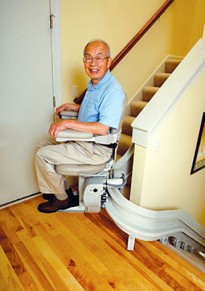I need help on adapting my home for my disability
29th April 2015
Thanks to the ever rising life expectancy age, people are enjoying life for longer. As a result, increasingly more elderly people are finding it difficult to stay independent in their home. Alongside that, most people in life will experience some form of disability which can occur naturally, from old age, health issues or an accident.
What is the first step to adapting my home?
The initial stage is to fully understand your disabilities so that your needs can be reviewed and evaluated this will help plan for now and potential future changes. Everyone is completely different and your local occupational therapist can be consulted to discuss this is more detail.
What changes need to be made to my home for my disability needs?
Depending on your needs, the possible changes to your home can be wide ranging from ensuring your front entrance is wide enough to fit a wheelchair or scooter, installing equipment such as bath lifts and stairlifts, adding hand rails in relevant places, making hallways and corridors wider, placing visual or hearing aids around the home, to motion sensors in case of a fall and emergency needs.
I need a stairlift…
We have been in the stairlift industry for many years and have expert knowledge of makes, models, sizes, fitting, engineering and servicing. Whether you need a curved, straight, want a brand new one or value for money reconditioned, need heavy duty, outdoor or bespoke, we can deal with all stairlift needs. We offer excellent warranties and after sale services.
I know what adaptations I need to make to my home, what do I do now?
Before you do anything, it is worth finding out if you are entitled to financial help with your home adaptations. Find out more by contacting citizen advice. Or speak to your local social services department at the council. They can arrange for someone to assess your situation and determine what help and funding is at hand.
Try this source to find your local occupational therapists http://www.cotss-ip.org.uk/find



